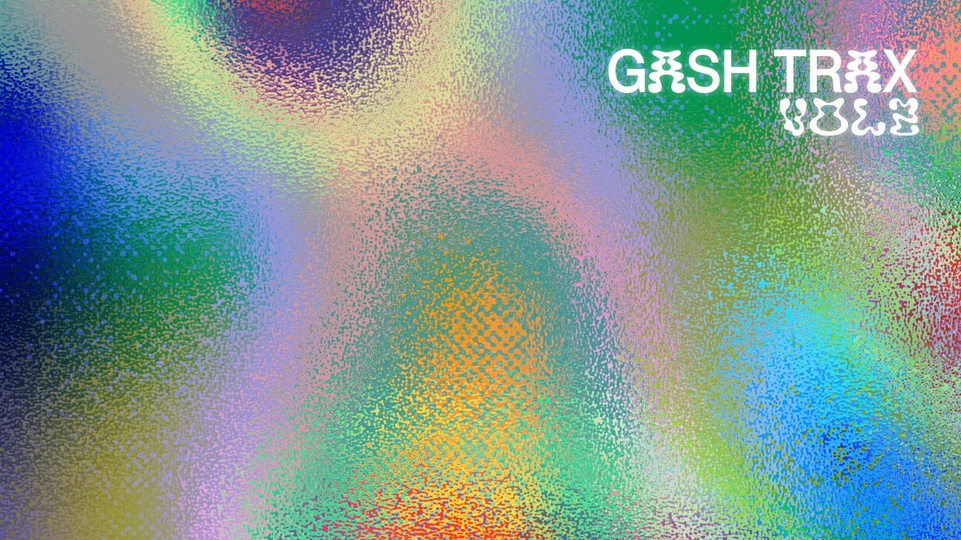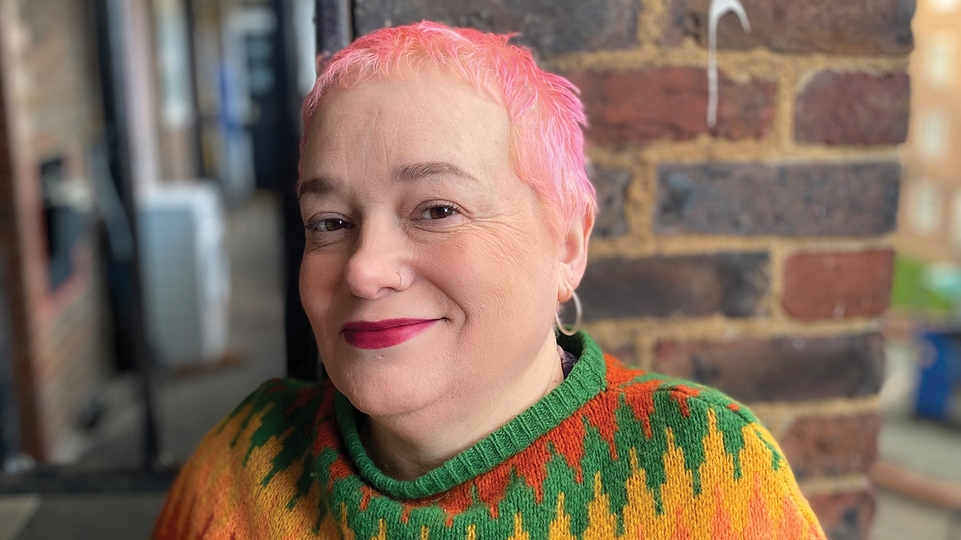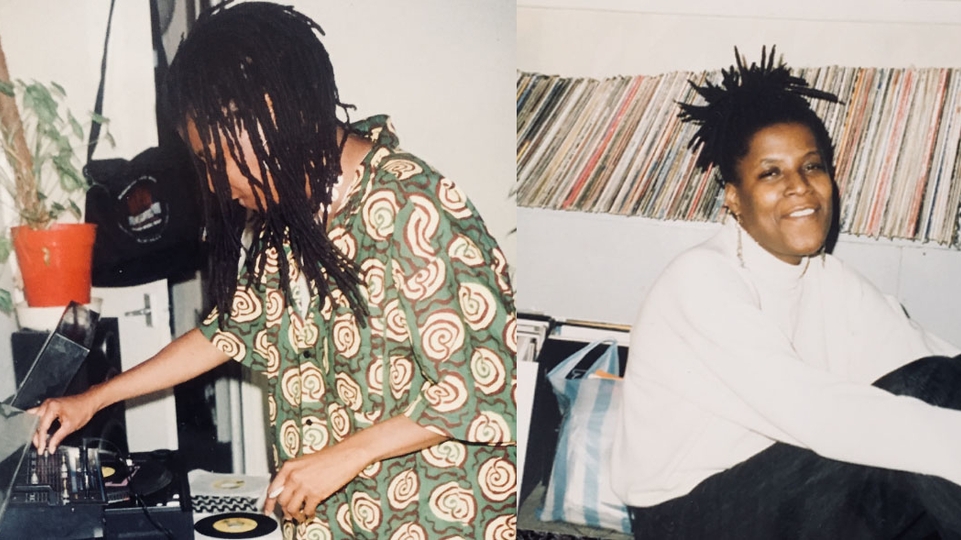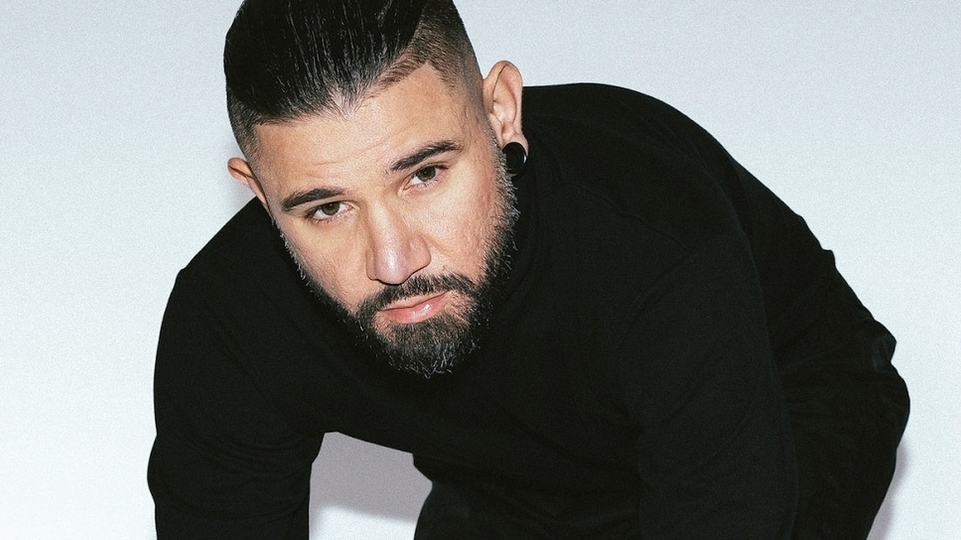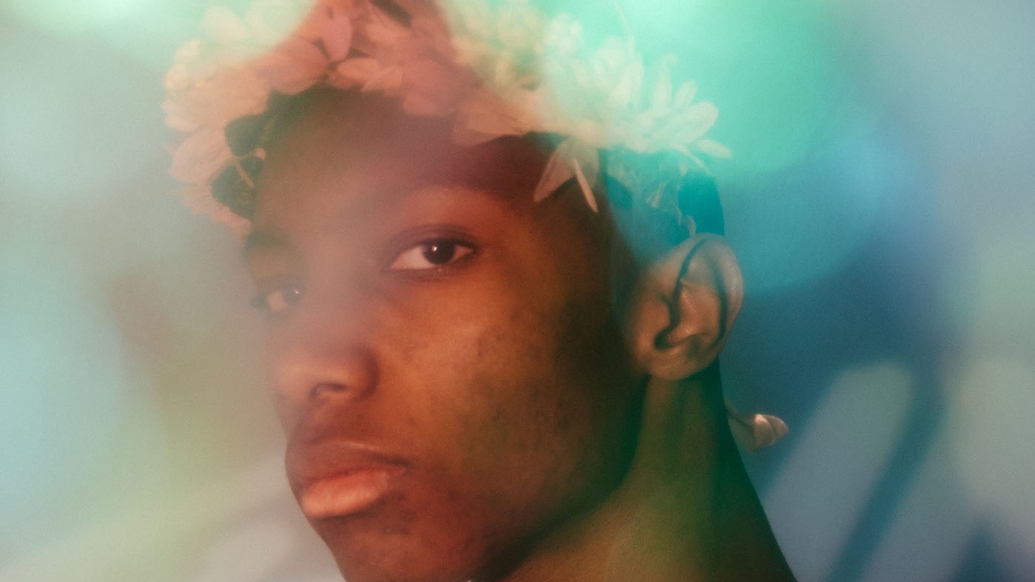
Welcome to Moore Kismet’s universe
Teenage bass music producer and DJ Moore Kismet hopes to flip the script on their scene, and showcase how power stems from breaking the mould. Ahead of their new single, ‘Call Of The Unicorn’, and their debut album, ‘Universe’, they share their creative journey so far
Unicorns are famously hard to find. The majestic creatures symbolise magic, and in legends of yore, anyone lucky enough to spot one was rewarded with wisdom, supernatural gifts, and good luck. As of late, stateside trap and dubstep fans may feel lost in a similar-sounding sea of sounds. They wander through a dearth of mass manufactured builds and drops in the hopes that someday they’ll happen upon a resonant, one-of-a-kind artist that fuels the genre anew.
Moore Kismet, aka Omar Davis, is, quite obviously, not a mythological character from a fairytale kingdom. They are a living, breathing, real-as-they-come person — a voice actor, a graphic artist, and a producer and DJ. But to the bass music community that’s searching far and wide for a unicorn, Moore Kismet is just that. The outspoken mental health advocate turned heads as a beat battle finalist at A-Trak’s Goldie Awards back in 2019 when they were just 14 years old. Fast forward to 2021, and they made history as the youngest artist to play Electric Daisy Carnival after snapping up that same superlative at Red Rocks and Lollapalooza’s Perry Stage earlier this summer.
At each show, the prodigy introduces thousands of ears to a disorderly take on song progression and structure that redefines the traditional boundaries of pop music. And they do it all on top of juggling economics and French homework. On nearly all accounts, Moore Kismet is a singular force.
“Just give me, like, .5 seconds to grab some Season-All for my fries,” Davis says with a hearty laugh, before whipping across the computer screen in a black jersey embroidered with their rainbow-hued moniker. They have a lot on their plate (literally and figuratively speaking), and our afternoon video call proves the perfect time for Davis to grab an after-school bite as a cast of family members flutter by in the kitchen’s background.
“My school made the horrendous decision to reopen our in-person campuses, so now there are a bunch of, I’m gonna say half-masked-up kids, because some kids know how to wear it properly over their nose,” Davis vents, referencing scenes that must be all too familiar in locker-lined hallways these days. “I keep telling people, if you wear your mask underneath your nose, that’s like wearing underwear with your dick flopping out. It’s stupid, It’s not doing anything for you or anyone else.” Did we mention they’re funny, too?
At present, Davis’s busy life unfolds in vastly contrasting environments. On weekends they jet-set across the country to unleash colorful, glitch-laden beats upon packed nightclubs, neon-lit raceways, and sprawling festival fields. During the week, they’re in classrooms, wrapping up senior year studies at a Los Angeles-area high school. Despite the challenging to-do list, Davis exudes pure enthusiasm.
“It’s been so incredible getting to explore these new places and meet people that I’ve looked up to for so long,” they elaborate with a gracious smile. A supportive mother and tolerant teachers make the dream possible. When absences are unavoidable, Davis collects course work ahead of time and plugs away at assignments from the road. It was more convenient when virtual learning was an option, but Davis makes it work.
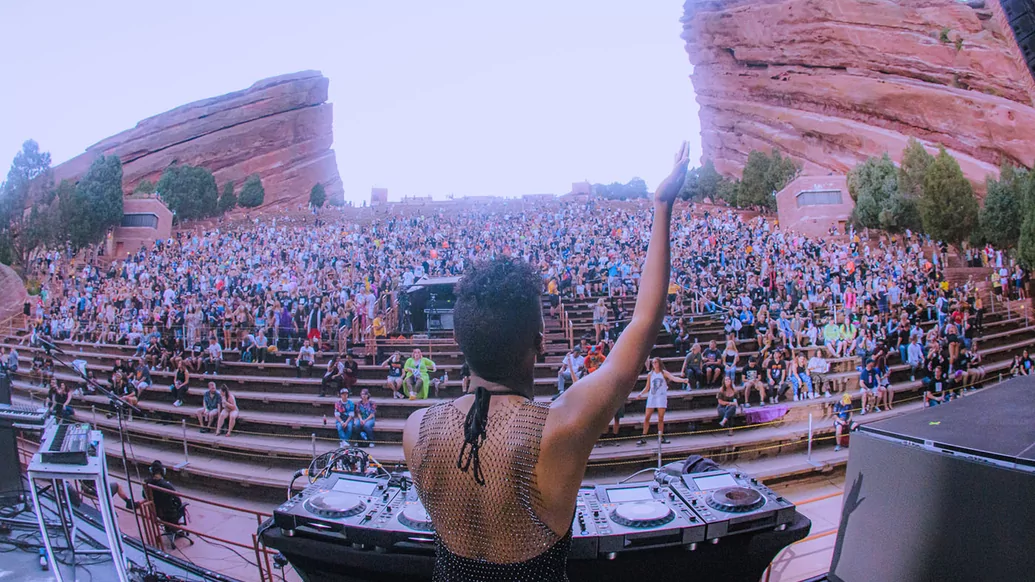

Once Upon A Time
“I was listening to electronic music one day in my computer science problem-solving class, and then from there I just said, ‘Yo, let me try this myself,’ downloaded the trial version of FL Studio 20, and got to work, and now here we are 10 years later,” Davis says, nibbling on a chicken finger between thoughts.
Growing up in an artistically-inclined family likely fostered an early interest. “We just felt like any normal family, only for some odd reason, whenever we were singing ‘Happy Birthday,’ we were always able to harmonize perfectly,” Davis shares affectionately. Their father worked as a music composer for CBS, and their older brothers are aspiring rappers. “Momma Kismet”, a professional singer, now plays the role of tour manager and personal stylist, and according to Davis, “she’s the best”. Last year, the two released a familial collaboration called ‘Flair’. It’s an expansive, celestial cut that demonstrates the proclivity toward the off-beat sound design that makes Davis’s works so distinctive.
“If you don’t know where to look for good bass music, it’s going to be incredibly stale. It’s going to sound very formulaic and very basic,” Davis says matter-of-factly. “But, if you know where to look for good music, you’re gonna find good music. And so, I wanted to create a project that somebody could find if they were looking for something they needed that was raw, that was innovative, that was creative, that was pretty, you know?”
An admirer once described Moore Kismet’s unique sound as “beautifully controlled chaos”. These three words encapsulate the spirit of Moore Kismet’s novel style, in which immersive, melodic swells give way to discordant, jarring sequences. The fan-generated phrase is now stamped across Davis’ social profiles, alongside other identifiers like “NB” (for non-binary) and “pan” (for pansexual).
Moore Kismet’s soundscapes are gorgeous, devastating, authentic, and fearless, both in their arrangement and messaging. Their approach to the artform is without a doubt challenging the norms of bass music, not to mention the cisgender white male aesthetic that’s so often associated with it.
“That is an issue that I’ve had with the bass music scene for so, so, so long, because it forces people to be closed in with themselves, which should literally never be something that anyone has to worry about,” Davis says, referring to the genre’s homogeneous outward appearance. “This is something that people need to talk about. This is something that people need to be aware of, because we can’t keep losing people to anxiety, depression, and suicide.”
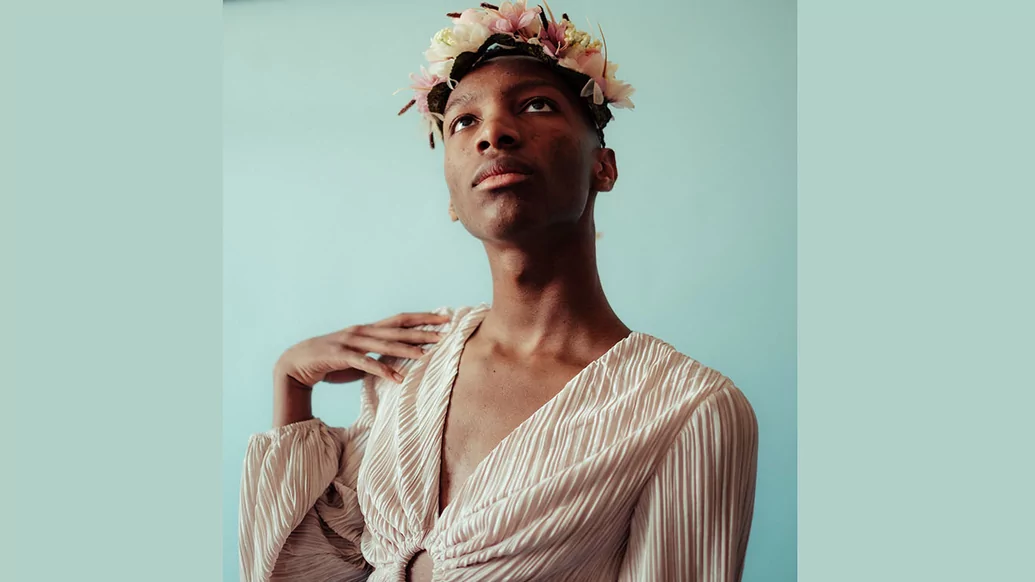
"We need to have more conversations about putting people like us into positions of power and making sure that we’re respected and loved and taken care of, because we get taken advantage of so fast and so much that it has become a huge problem”
Davis’ newest track, ‘Call Of The Unicorn’ will drop later this month via Thrive Music/Virgin Music. It’s a victorious, mid-tempo track offset by the piercing screeches and rogue bleeps that are a hallmark of the 16-year-old producer’s style. Tasha Baxter, one of Davis’s good friends, shares co-writing credits and offers silky vocals to this empowering gem. “‘Call Of The Unicorn’ is essentially stating that I’m not going to let toxic people and negativity hurt me anymore,” Davis says. “I’m a badass, and I can feel emotions when I need to feel emotions.”
While Davis’s confidence is palpable, that hasn’t always been the case. Their forthcoming album ‘Universe,’ which will arrive in 2022, was written over the course of their high school experience and explores this transformation, and their journey of self-discovery. “A lot of the songs were written at points in my life where I was not feeling the greatest, even sometimes to the point of not wanting to be here on this planet anymore,” they divulge without hesitation.
“And so I think that vulnerability and my openness is very prevalent throughout the songwriting and throughout the productions on this album,” they continue. “I just hope people can understand that and see that, and can maybe resonate with it themselves, because that’s my goal with this album: To create something that means something to people that aren’t just me.”
The LP’s lead single captures a moment in Davis’s darkest hour. “‘Rumor’ was written the night that I tried to commit suicide for the first time,” they reveal candidly. “And I wrote that song entirely based on how I felt in that moment, and how I felt about my life in general, and dealing with homophobes and transphobes at school, because at the time of writing ‘Rumor,’ I was already out. So, having to deal with that just kind of made me feel a different way.” It evokes an essence of despair with smothering filters and deep, melancholic lyrics sung by WYN. It’s thick and weighted, and lingers on the eardrums.
Another selection, ‘Vendetta For Cupid (feat. TYGKO)’, took shape after Davis spoke out against their physical and verbal abuser. It’s an ascending, twinkling tune that hits like it’s in hyperdrive. “She had hurt a lot of people, so in a way, I was writing that song as kind of retribution, and for closure on the situation that she left us all in,” they say.
The first half of the album doesn’t shy away from heavy subject matter. There’s a reason for that. “You hardly ever see somebody talk about something like that in electronic music, let alone electronic pop,” Davis continues. “I wanted to hopefully be a jumpstart to more people showing vulnerability in their situations, should they feel comfortable enough to.”
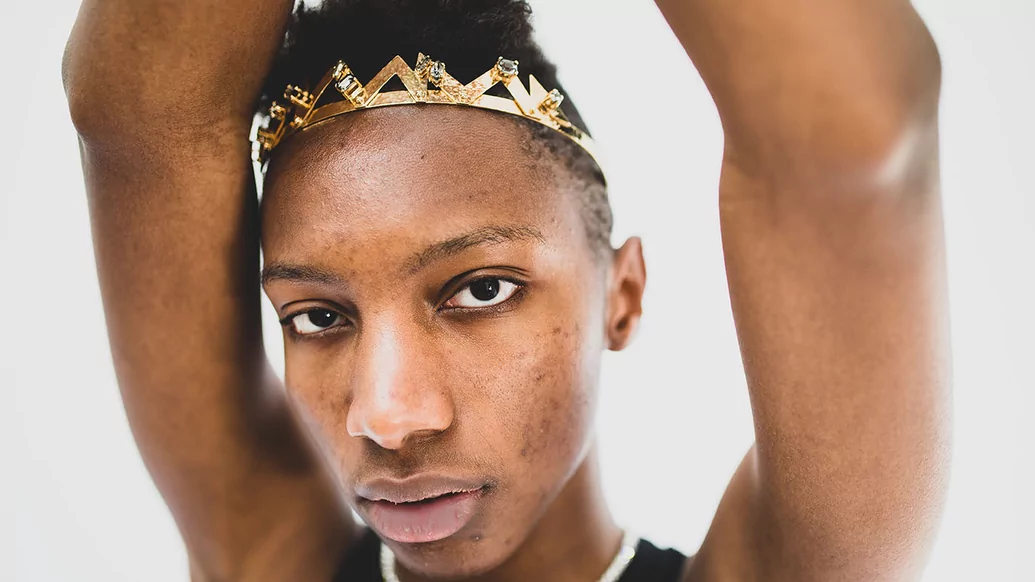

Four years later, ‘Universe’ is the musical embodiment of Davis’s winding road to radical self-acceptance (or to becoming “unapologetically me” as they frequently say). Even though some bits resonate like distant memories to Davis, each track exemplifies an important chapter in the Moore Kismet story.
When asked whether they feel a sense of detachment toward the earlier cohort of productions, Davis doesn’t miss a beat. “Kinda. But in addition to that sense of detachment, there was also a sense of overwhelming love for it, because it will show the evolution of my sound over the course of time,” they explain.
“Pretty much the entire first half of the album was written when I was a freshman/sophomore, and then the second half was written as a junior/senior,” they continue. “I mean, the album’s name is ‘Universe’, but it really just goes to show how that very universe is expanding. In a way, I’m kind of establishing this timeline for the listeners to hear.”
They go on to impersonate how they’d introduce the album, drenching the description in a rich coat of the kind of self-deprecating humor embraced fully by Gen-Z. “‘Hey, remember when I used to be good and also suck miserably at the same time? There are six songs on the first half of this album that are exactly that,’” Davis jokes. “‘And then following this interlude, you’re getting everything that I love with my entire heart and cannot stop listening to now, as a young adult.’”
This playful observation is clearly another instance of a creator being their own toughest critic. But big names are starting to take note of their talent. Davis recently hinted on Twitter that a high-profile collaboration is in the works with one of US dubstep’s biggest disruptors — the one who changed the game.
“For the next single that we’re putting out following ‘Call Of The Unicorn’, the process was very, very strenuous, and not in a negative way,” Davis says. “It was just a very long, very back and forth thing. But it was very, very, very beautiful to kind of see it all come together.”
Other pieces on ‘Universe’ came to fruition in a less managed fashion — virtual spaces like Discord and Zoom became playgrounds for Davis and their colleagues to flex creativity during longer periods in lockdown — they point to emerging names like COOKIE., laxcity, Chuck Sutton, and Pauline Herr as some session contributors. “I really wanted to make sure that if there was any way I could approach making as unique of a record as I could, I was going to do it,” Davis adds.
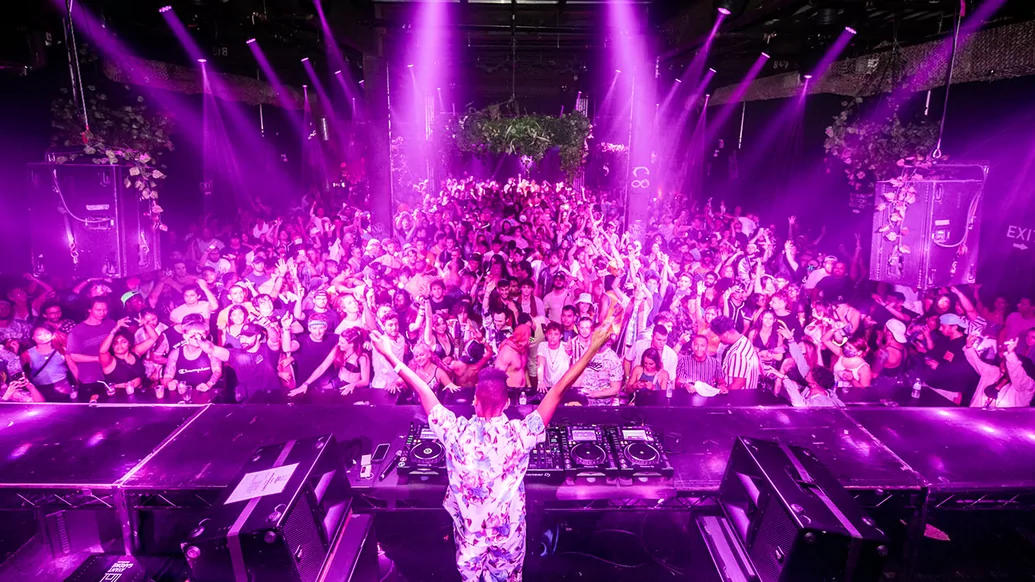
Not So Far Away
Davis’ growing popularity is proof that audiences are craving something fresh — in both a sonic and human sense. With every festival crowd won over, they are bringing visibility to LGBTQ+ and minority voices, especially in the bass music scene where people of color and gender-queer performers are few and far between. But is it enough? Davis says not even close.
“I barely see anybody of my skin color or with my gender identity or with my sexual orientation out there doing it, and even so, you know, they might be closeted because they’re afraid of figuring out what the industry might do to them if they were to be out,” Davis says with urgency in their voice. “I just really think that we need to have more conversations about putting people like us into positions of power and making sure that we’re respected and loved and taken care of, because we get taken advantage of so fast and so much that it has become a huge problem.”
Moore Kismet is moving the needle, slowly but surely. Their band of followers — the “Unicorn Society” as they refer to themselves — is proliferating. This loyal bunch gets a tad stronger every time someone chooses inclusivity over exclusivity, tolerance over bigotry, and love over hate. Even though it’s not Davis’s responsibility to publicly enlighten the masses, they do so often, and with grace.
“I’ve always felt the need to speak out about what I believe in,” they explain with pride. “And you’re right, I’m not obliged to tell people something they’re doing may be insensitive, but I do it anyway, and I do it because if I can educate at least one person, then about 15-20-25 other people will not get hurt in the same way.”
In bass music, Moore Kismet still represents something largely elusive, but from their influence, more diversity is bound to emerge. Perhaps soon enough unicorns like them won’t be so scarce, and that’s a win for the entire industry. Because when we as listeners stumble upon these special beings, we too will grow from the wisdom, strength, and beauty they bestow.


